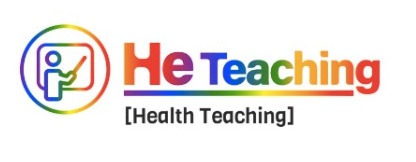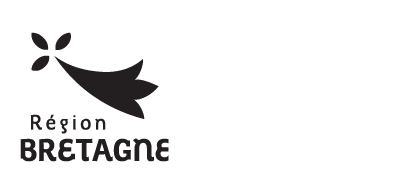The “Journée of HeTeaching Project”: a discussion on education and health outcomes in teacher training for the 21st century

One of the great challenges of the 21st century is training teachers to deal with “hot” topics in the classroom. Over the last two years, the Health Teaching (HeTeaching) project, coordinated by Daniel Manzoni-de-Almeida and supervised by Patricia Marzin-Janvier from CREAD/INSPE/UBO, has been dedicated to understanding and proposing ways of approaching teacher training processes from the perspective of critical pedagogy with various themes linked to health and science.
On November 24[1], at the INSPE Brest at UBO, a day of seminars was held for the public presentation and discussion of the results and actions of the project with the presence of Nicolas Tocquer, director of the INSPE, collaborators such as Professor Olivier Morin from the INSPE of the Université de Lyon – who gave a seminar on health education and the phenomenon of vaccine hesitancy, participants who are master’s students and researchers from the BIENVENUE program who have participated in the types of workshops on critical pedagogy offered in the HeTeaching project and the general public.
The thematic backbone of the HeTeaching project is related to health issues. Over these two years, the project has been structured around a four-pronged platform.
The first axis is called “mapping circulating knowledge and know-how”. The aim of this axis is to build tools for understanding the dynamics of the circulation of scientific, social and political knowledge in a given target population. For example, a questionnaire with objective and essay questions was designed to understand the circulation of scientific knowledge and fake news about vaccines and Covid-19 among university students and the characteristics of the arguments put forward by this population on this subject. The main results of this diagnosis show that there is a circulation of misinformation about vaccines and Covid-19 among the university population in the sciences. These results will be presented at two national and international conferences in 2024, as well as being published in a specialized journal. The important thing about this stage was the construction of a specialized and specific diagnostic tool, which will help in the decision-making process of preparing future teachers for critical thinking.
The second axis is the construction and application of teacher training workshops in critical pedagogy. The aim of these workshops was to build democratic spaces to empower researchers and teachers to tackle current “hot” topics, such as gender, sexuality, vaccines and Covid-19, and to build teaching sequences and pedagogical material for their classes or for society in general. For example, the workshops that were requested by the program for pedagogical training of the researchers of the BIENVENUE program. In summary, workshops were held to build science teaching sequences on Covid-19 for researchers from the BIENVENUE program, which is resulting in a book that will be published bilingually (English and French) bringing together the researchers’ teaching proposals. In this section, Beatriz Arce Lopez, a researcher at INRAE, Laboratoire Universitaire de Biodiversité et Ecologie Microbienne and the BIENVENUE/MSCA program, and James Behan from the CNRS, Institut des Sciences Chimiques de Rennes, Université de Rennes – who was part of the BIENVENUE/MSCA program – presented their science teaching sequences that make up chapters of the book on teaching sequences and Covid-19 derived from the critical pedagogy training workshops for researchers.
For researcher Beatriz Lopez: “This opportunity has allowed me to learn how to communicate with an audience outside the scientific world and to add value to my work by writing a chapter on a science education project in the e-book “Challenges of science education in times of COVID-19″. I am happy to have contributed to this project, to have developed my creativity and the importance of having educational objectives and tools for the transmission of science at all levels of education, especially from the youngest (primary). The communication, dissemination and exploitation of scientific knowledge are very important in the MSCA-BIENVENÚE program. This training course is a way of achieving these objectives of raising awareness, involving and sharing my knowledge at all levels of citizenship and science education”
Another type of workshop was to train and accompany M1 and M2 master’s students at INSPE-Bretagne. The M1 students were offered a course entitled “Teaching science and human rights”, with the aim of getting them to address issues such as gender and sexuality. This section included a seminar by MEEF-INSPE-Bretagne students Ismael Dampierre and Tifenn Le Cann, who presented the results of their master’s work, under the supervision of Daniel Manzoni de Almeida, on the development, application and analysis of an activity on gender and sexuality issues for elementary school students in French schools. The M2 students were offered workshops to accompany the development of their master’s dissertations on vaccine issues. This section featured a presentation by Laurine Houdoux, who spoke about the development and study of a game about vaccines that was the subject of her master’s thesis while taking part in the workshops developed in the HeTeaching project. This stage of the construction and actions proposed in the workshops was presented in an international communication at the last congress of the European Science Education Community (ESERA) held in Cappadocia (Turkey) and will be published as a book chapter.
The third axis, “critical analysis of teaching practices”, aims to allow workshop participants to experiment, analyze and reflect on how their proposed teaching sequences add to the teaching-learning process on contemporary issues in the classroom. For example, the M2 students built and tested activities and analyzed their practices on vaccines in elementary school classrooms in the Bretagne region, as shown in the seminar by Laurine Houdoux, Ismael Dampierre and Tifenn Le Cann. In her seminar, Manzoni de Almeida also showed the results of the ethnographic study she carried out while accompanying another master’s student participating in the HeTeaching workshops, Pierre Faure, on the construction, application and analysis of the teaching sequence on vaccines from a socio-political-scientific perspective. These results are important for thinking about ways of creating critical and analytical spaces in teacher training processes.
For Laurine Houdoux, author of the master’s thesis “L’éducation à la santé en classe de SVT Apporter des savoirs, des savoir-faire et des savoir-être au sujet de la vaccination”: “For me, taking part in this project is above all an opportunity to understand what’s at stake in teaching today and tomorrow. I was able to learn about the breadth of studies on a subject and the ambiguities that make “education for” so complex. Throughout this project, I’ve also met professionals with analytical skills and a sense of perspective that I don’t have. I emphasized the importance of collaboration between researchers and teachers. Teachers draw tools from their exchanges with researchers, while researchers become aware of teachers’ field imperatives and the difficulties of the target audience”
The fourth axis is related to issues of diversity and inclusion. The Covid-19 pandemic has been an important phenomenon for us to think about how health issues and access to vaccines and treatments are linked to human rights. Addressing these interconnected issues can help us think about processes of diversity and inclusion. In his seminar, Daniel showed the results of studies on teachers’ engagement with scientific issues linked to processes of identities and intersectionality, for example, on the subject of “monkey pox”, prejudice and fake news against oppressed populations such as LGBT+ and immigrants. These results are being published as a chapter in a book that will be published in 2024. The main result of this axis is related to the construction of teacher training spaces for the development of teaching actions linked to processes of emancipation, creativity and cooperation with the aim, via critical pedagogy, of discussions on the most different forms of diversity and inclusion of oppressed groups.
As Daniel presented at the conference, the HeTeaching project was born 10 years earlier from a first meeting and collaboration established between Daniel and Patricia Marzin-Janvier at a congress in 2013 in Cyprus, where both had a common interest in studying and understanding the teaching-learning processes in health, science and immunology subjects. In 2021, with the approval of the project by the BIENVENUE/MSCA program, this collaboration was catalyzed and expanded in which it has already reached and benefited 119 participants in the critical pedagogy training workshops (INSPE master’s students in 2022/2023, BIENVENUE project researchers, science and health teachers and students in Brazil). After two years of existence, the HeTeaching project is entering a new phase with the aim of solidifying its 4 axes of action as forms of curricular programs for pedagogical training, a master’s degree in international training in science teaching and human rights, and analytical tools for diagnosis and action-taking in critical pedagogy.
The HeTeaching project, from its first seeds 10 years earlier, was born out of a desire to build knowledge, the dream of practical action in the classroom by researchers to contribute to reducing inequalities in the world and to ensure that important life and public health issues received the attention and power they needed in the classroom through the training and empowerment of teachers. The opportunity of the BIENVENUE/MSCA-EU program allowed the development and construction of a proposal for a teacher training model born in Brittany and named by Daniel, based on his basic training as an immunologist, as a “critical pedagogy vaccine” model.
Researchers Daniel Manzoni-de-Almeida and Patricia Marzin-Janvier would like to thank the BIENVENUE program, the MSCA-EU program, the Bretagne Region, CREAD, INSPE and UBO for funding this phase of the research line. Science is dynamic and in constant motion. A new phase of HeTeaching will begin, even more powerful for the challenges of 21st century education.
[1] Check out the full program at the link: : https://www.inspe-bretagne.fr/journee-d-etude-health-teaching
Learn more about Daniel Manzoni and his project HETeaching.
